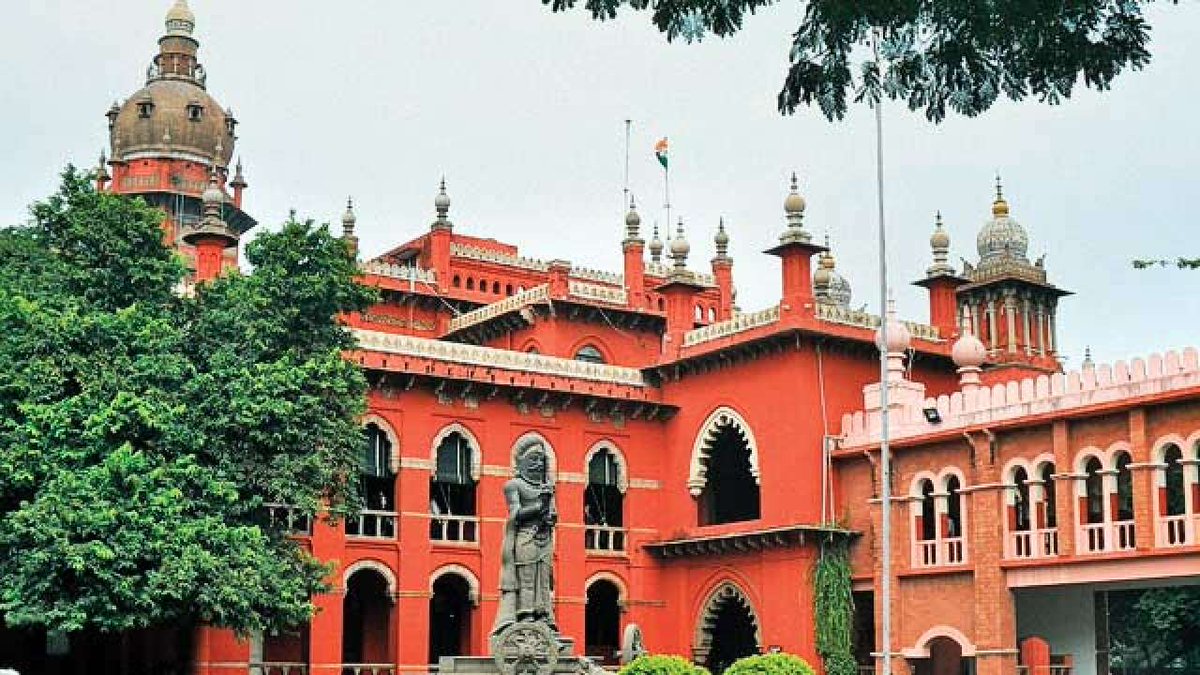Madras HC quashes 40 pleas challenging land acquisition for MRTS project

- Country:
- India
The Madras High Court has dismissed a batch of 40 petitions challenging the land acquisition for the Mass Rapid Transit System project here, clearing an eight-year-old roadblock in completion of the final 500 metres of the Velachery-St Thomas Mount extension. However, the court said the petitioners were free to pursue the remedy available to them under the Right to Fair Compensation Act if they were not happy with the compensation awarded for their land.
The project, which covers a distance of 5 km, will provide a link to suburban and metro rail services to commuters in the city. About 98 per cent of the work covering a distance of 4.5 km has been completed, and what remains is about 0.5 km. The acquisition of private lands for the incomplete portion was challenged in the petitions. Dismissing the petitions, Justice N Seshasayee said, "This controversy is not unfamiliar to this court, neither are the petitioners new visitors in its corridors." "And, it must be recorded that the anxiety of the petitioners to save their land from acquisition has met its match in the attitude of the government authorities, which ranged anywhere from being lackadaisical to being indifferent, if the sporadic acts of seriousness in taking the project forward is ignored," he said.
The judge also said as a result, "a dispute that ought to have concluded at least three years ago has become a nursery for litigations. The issue started when the Tamil Nadu government issued a G.O (government order) in connection with the project in 2010. Since then, a number of pleas have been moved challenging the acquisition process." Time and again, the high court has dismissed pleas with directions to the authorities to follow procedures under the Right to Fair Compensation and Transparency in Land Acquisition, Rehabilitation and Resettlement Act, 2013, he said. However, as the authorities failed to follow the due process of law, it resulted in a series of litigations, including the present batch of pleas, Justice Seshasayee said.
Pointing this out, the judge said there is in display an utter lack of professionalism in ignoring a critical factor that directly affects the discharge of statutory responsibility, namely the commencement of the Right to Fair Compensation Act. What puzzles this court is, why, despite this its direction to issue notices under the Right to Fair Compensation Act, 2014, notices were again wrongly issued under the old Act, he said. It should not be forgotten that this court was informed during the arguments, that there would be an annual cost escalation of about 5 to 6 per cent for every year's delay, the judge said. "Who pays this differential cost occurring due to such escalation? Aren't we, the people of this country who pay? And, are we not called upon to pay for the lapses of the unprofessional authorities," he said.
Finally, he noted that the petitioners had gambled on the statute, but this time, their optimism, perhaps founded on their earlier successes, appears to have deserted them as their attitude reflects an over-ambitious pursuit. "Plainly, they appear to be keen to hold the entire project to ransom, and create causes out of their ingenuity to defeat the public purpose behind the project," Justice Seshasayee said. "Now, if they feel aggrieved by the inadequacy of the compensation now awarded, they are free to pursue the remedy available to them under the Act," the judge added.
(With inputs from agencies.)
- READ MORE ON:
- Special Leave Petitions in India
- Judge
- Court
- Supreme court
- Madras High Court
- Rights
- Human rights
- Voting Rights Act of 1965
- MRTS project
- Justice Seshasayee
- petitions
- old Act
- acquisition process
- land acquisition
- government authorities
- Resettlement Act
- Fair Compensation Act
- acquisition of private lands
- entire project
- Right
ALSO READ
Former China Everbright Group chairman charged with taking bribes, state media reports
Excise scam: K Kavitha's counsel terms her arrest by CBI 'illegal', accuses probe agency of violating fundamental rights.
In US meeting, Philippines says it will assert South China Sea rights
Rights groups file new case against German arms export to Israel
European court decision shows that a safe climate is a human right, former UN rights chief says










